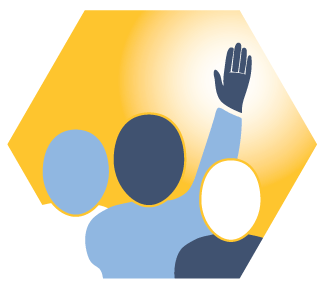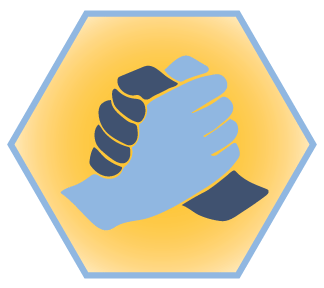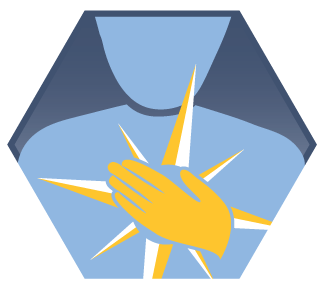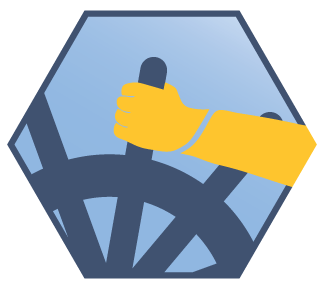Crew Code
To deliver on the commitments we’ve made with our scholars and families we know our crew must be masters in our craft. In order to be our best selves – collectively and individually – we need to be diverse in talent, perspectives, and experiences. We also know that’s not enough. We must foster a culture that encourages us to leverage our strengths and differences in a way that ignites our creativity and excels our performance. To that end we are intentional about the talent we seek, how we engage our families and scholars, and the values we aim to lead by.
Our Crew Code is an articulation of the values we believe create the inclusive, thriving culture that students and adults alike experience at Alma. As a result, Alma cultivates the kind of high quality learning and exceptional results our scholars are capable of.

Show Me the Outcomes!
The purpose behind everything we do is to put every single one of our scholars on the path to college and to challenge them to be service-minded leaders. To that end, we filter every decision and action through the lens of its potential impact—positive or negative—on scholar achievement. We define scholar achievement more broadly than standardized test scores. To be on the path to college, our scholars must be able to produce jaw-droppingly good work and learn strong habits of work and character.
Crew
We believe that having a diverse crew with a range of perspectives, backgrounds and communication styles is what makes us effective educators and models to our diverse scholar population. But it doesn’t stop at that. We prioritize Crew Relationships—with colleagues, scholars and families. We create and maintain these relationships by investing in them early and often through lots of face-to-face interaction, rejecting the “culture of nice” in lieu of speaking hard truths that lead to shared understanding and strengthened partnerships. We spend time discussing and working through issues of privilege, power and cross-cultural communication in order to make us stronger as a crew. We value spending time together in purely social contexts as well as in more collegial settings.
High Demand, High Support
We maintain the highest possible bar for all of our scholars every single day. That means that each task we ask them to do is rigorous and worthy their time and effort. At the same time, we provide smart supports for each scholar so that they will be able to reach that high bar. When a scholar is not meeting expectations, our response is to ensure that they’re receiving the right support and that this support is consistently given. Real learning takes time. We don’t give up before the miracle happens—especially when it comes to behavior. Just because a scholar’s behavior hasn’t changed dramatically in a short period of time does not mean that our approach is not working. We’re always careful not to provide more support than a scholar needs, which would rob them of the opportunity to do the hardest work on their own.

Content is King
At Alma, we believe that great teachers are there to help scholars access great content. That means that we don’t wait until the later elementary grades to teach subjects like science and social studies. In teaching literacy, we pay close attention to the texts we put in front of our scholars to ensure that they’re high quality, culturally responsive, and engaging. We reject the over-emphasis of teaching reading “strategies” in favor of teaching and reinforcing a handful of strong habits while reading and writing about high quality texts. We never forget that the purpose of teaching skills in reading is to enable scholars to understand and learn from content. Through our expeditions and unit plans, we ensure that our scholars are able to stay with a small number of topics over an extended period of time, building domain specific vocabulary and background knowledge as well as a deeper understanding of key themes, underlying structures and cultural relevance. Whenever we can, we “nerd out” about the content our scholars are studying, igniting our own curiosity about it so that our scholars get fired up about it as well.
Oxygen Mask
On an airplane, in the event of an emergency, adults are advised to put on their own oxygen mask before putting on their children’ mask. In order to be effective models and leaders for our scholars, we first need to take good care of ourselves. Our ability to deliver great lessons, maintain emotional consistency and be creative is dependent on our staying emotionally, mentally and physically fit. Likewise, to succeed in this work over the long term, we need to build and maintain the kind of habits and culture that allow for the renewal and sustainability of our energy. This means that we watch out for the wellbeing of our colleagues and offer help when stress or crisis is sucking them under. It means that school leaders and managers check in regularly with crew members and offer support to those who need help managing their load. It also means that our school sets clear priorities so that teachers and other staff can decide which tasks get done each day and which tasks can wait. When determining our daily schedule and annual calendar, we keep in mind the need for our crew to have regular opportunities for rest and rejuvenation.
It’s Your Ship
At Alma, there are no passengers, only crew. That means that each and every one of us takes full responsibility for our collective success as a school. We take pride in Alma, in our work and in the role we play in transforming the lives of our scholars. Everyone throughout the school contributes to and is clear on our priorities, therefore everyone is better able to make decisions and find solutions independently. Teachers have the autonomy to be creative and make the right decisions for their scholars on a day-to-day basis. We all avoid “passing the buck.” Alma leadership trusts the rest of the crew to make decisions and think for themselves regarding their classrooms or spheres of work within the school. Likewise, our leadership solicits multiple perspectives in decision making and thoughtfully communicates the reasoning behind major decisions so that crew at all levels can carry out the mission and represent the school well.
Challenge, Challenge
We love a challenge! No one comes to Alma expecting the work to be easy. Like our scholars, we see difficult problems as opportunities to increase our capacity and grow our brains. When we adopt a growth mindset in regard to our work, we view difficulty as a natural part of becoming better in our practice. This means that whenever possible we try to frame a task as a “challenge,” something that is hard, but doable when we leverage our collective strengths and resources, rather than a “threat,” something that we’re not up to with our current resources. When we’re under a constant state of threat, we can wear ourselves down physically, reduce our creativity and stress out the people around us. Like the best competitors, we’re intense in a way that contributes to, rather than detracts from, our crew’s performance.
